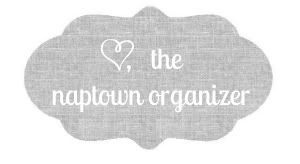Last week a Facebook friend posted a thought-provoking critique of Richard Florida's
Rise of the Creative Class. For those who care about these things, and I realize a lot of folks don't, the article addresses the current relationship between the arts and contemporary culture, and challenges certain beliefs regarding the economic value of art in society. The article, by Frank Bures, is titled "The Price of Everything." It's popularity may be due to the fact that it attempts to knock over one of our newly erected sacred cows.
Having a little background on Florida's ideas, some controversial, is helpful but not necessary to find Bures' piece stimulating. (He briefly outlines them in the article.)
Early in the piece Bures laments that many people found his observations "depressing." After analyzing this reaction he concludes:
I suspect it has to do with a shift in our attitude toward art and its place in our lives over the last decade or so — namely, the idea that if something is worth doing, it should also make money. Intrinsic value – in virtually every sphere– has given way to the metrics of financial return. Or as political philosopher (and Minneapolis native) Michael Sandel notes in his new book What Money Can’t Buy: The Moral Limits of Markets, “We have drifted from having a market economy, to being a market society.”
When I read these words I was reminded of Dr. Francis Schaeffer's concerns expressed in his book and video series,
Whatever Happened to the Human Race? that he wrote with Dr. C. Everett Koop. It's basic premise is that there are some things that have value which should not be measured in purely economic terms. He illustrates this in a variety of ways, including the manner in which a price was placed on human beings during the slave trader days. The authors extrapolate that this same demeaning of what it means to be human is what led to justifications for abortion and euthanasia. When people are not productive, then we should get rid of them because they are a drag on society and progress.
Please don't stumble on the abortion statement there. My point, as Bures notes, is that capitalism seems to lay claim to everything nowadays, and that Schaeffer tried to argue that some things should remain in a more sacred realm. i.e.
People.
In contrast, Richard Florida argues that art and "creatively 'activated' spaces can help jumpstart a local economy." Bures balks at this. Is this the role of art? Does art only have value when it is used to improve the economy?
In his summing up, Bures writes:
My fear is this: Once people realize that art may not be stoking a secret gravy train, they will simply want to get off it. If creative placemaking schemes don’t pan out, the false hope they engendered might do more damage to arts funding in the long run, because they will have shifted the focus away from our most compelling reason for support of the arts. We should fund art because it makes the space around us the kind of place we want to live.
Art matters. Design and beauty matter.
This is not to say that commerce is evil either. But things need to be kept in perspective. And like Bures, I am wary of what is hot today as an idea because it will be out of fashion tomorrow. The "hippie" movement was a statement against materialism that declared people are more important than things. A decade later the Yuppie movement swept 90% of those hippies away to chase BMWs and a lifestyle that was the complete antithesis. Alas.
Read it, think about it. It's a bite-sized morsel to chew on for today.
The Price of Everything. And check out Richard Florida's response at the end. Let's keep the dialogue going. It's good for us.
















































